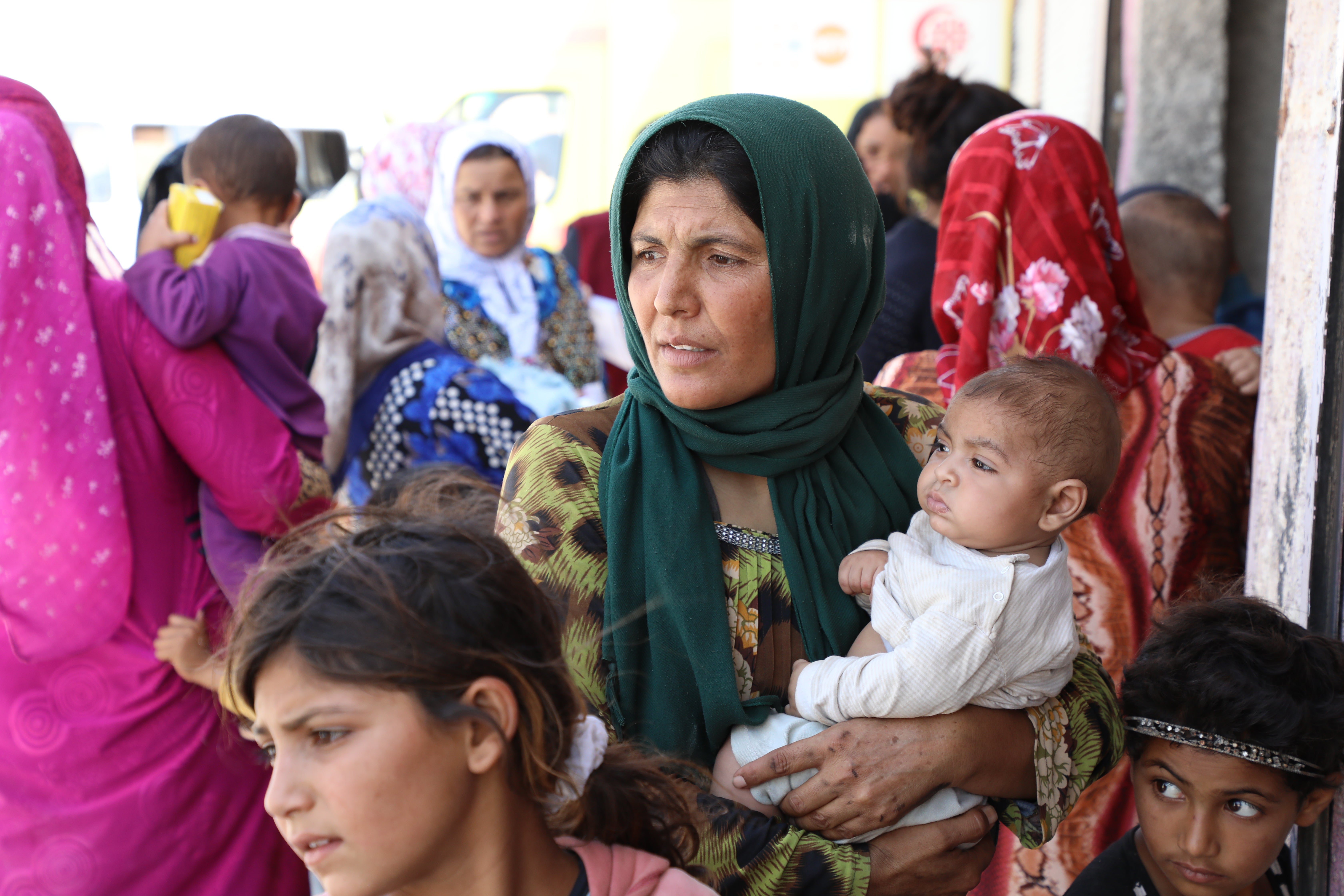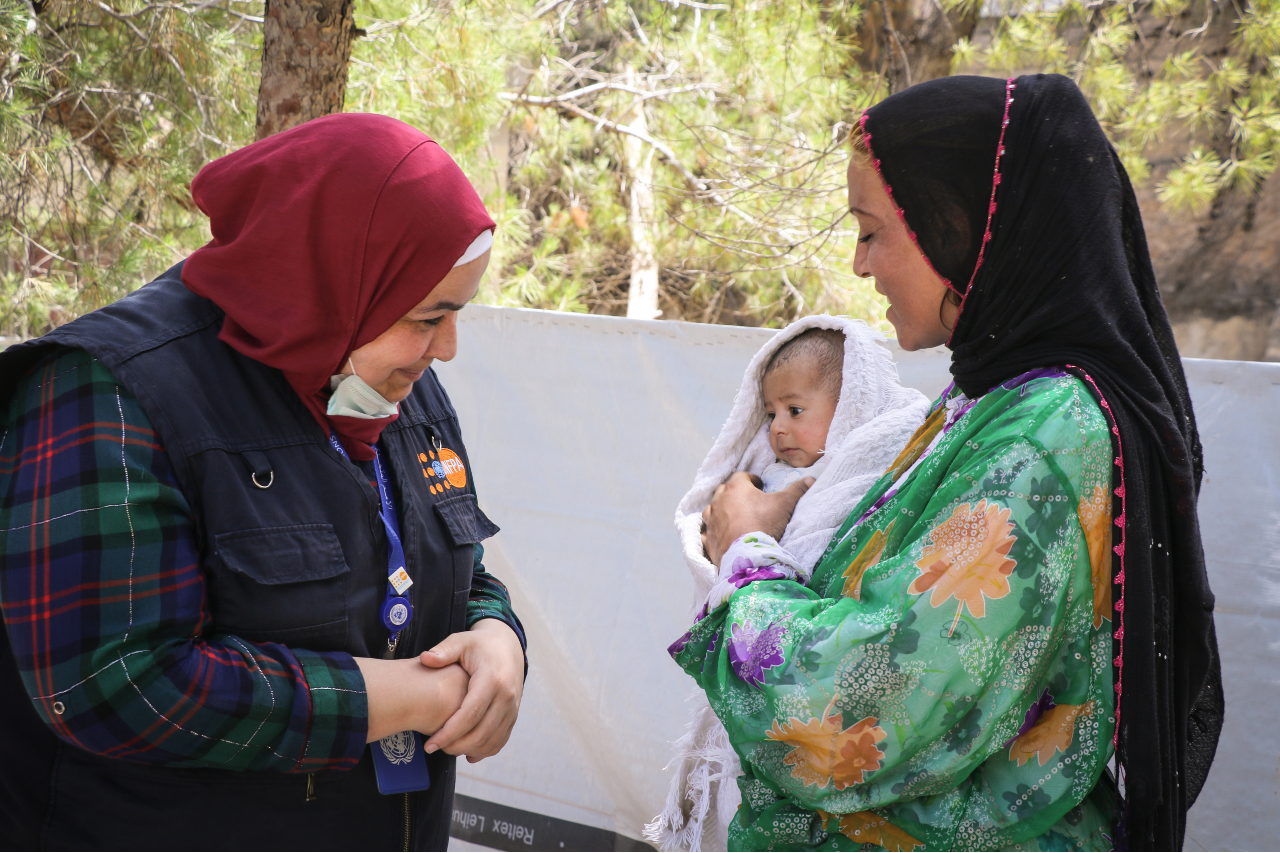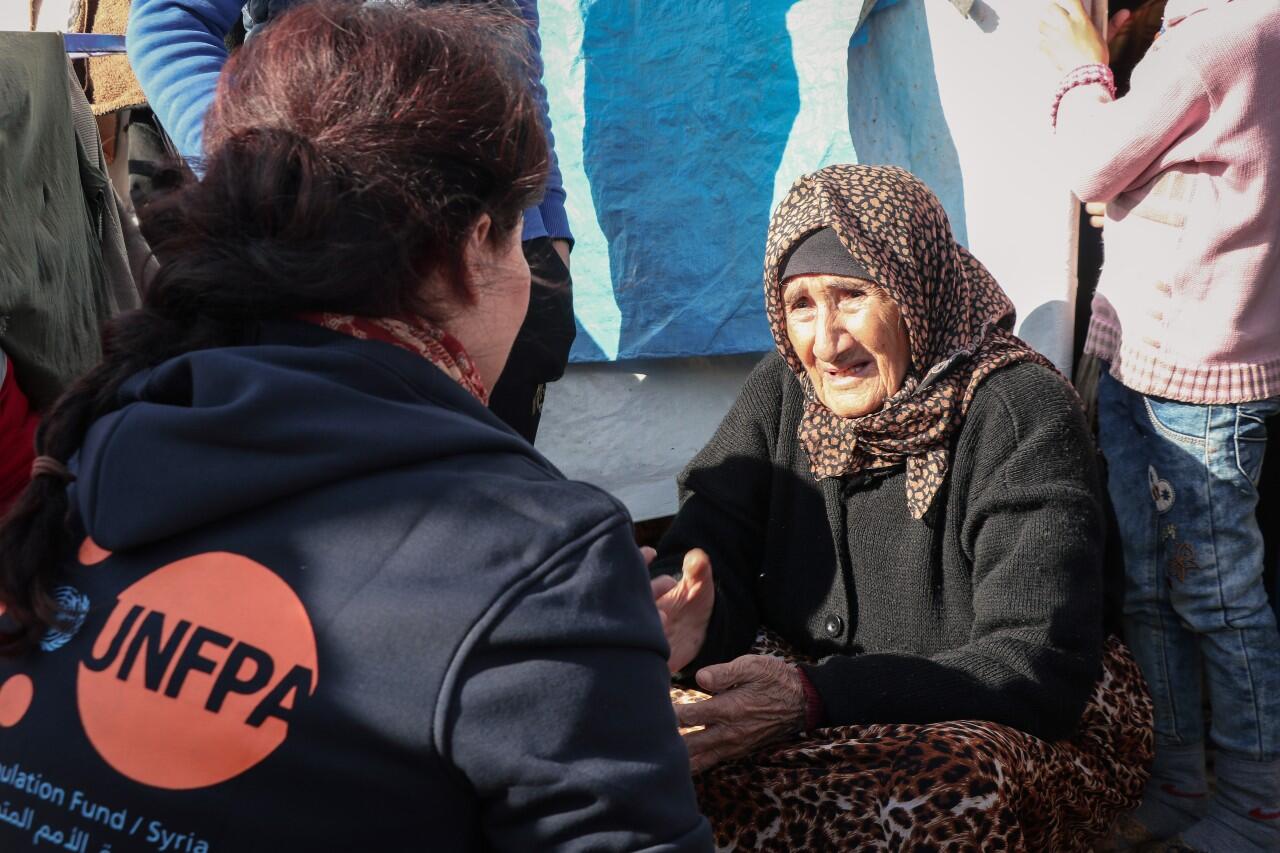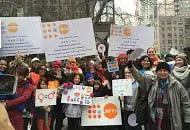As the Syria crisis marks its 10th year, the situation is worse than it has been in years. Consistent trends of gender-based violence, a worsening economic situation, and COVID-19 have converged to place lives and liberties at risk
The United Nations, New York – 16 March 2021 - UNFPA, the United Nations sexual and reproductive health agency, is gravely concerned about the worsening situation in Syria, which marks a decade of crisis.
An estimated 13.4 million people remain in need inside Syria. Among them are 3.6 million women and adolescent girls who need access to quality sexual and reproductive health (SRH) services, half a million of whom are pregnant. More than 11.7 million people — half of the Syrian population — remain internally displaced or are living as refugees in host communities throughout the region.

Ten years on, the crisis in Syria is worse than it has been in years. Protracted instability and disruptions in community networks, a worsening economic situation, and the COVID-19 pandemic have converged to create an unprecedented crisis, further placing the lives, dignity, and fundamental freedoms of Syrians at risk. With no political solution in sight, violence and trauma is common among the women and girls of Syria, both those still living in their home country and those exiled to refugee camps and communities.
“After such a long time, and after losing the memory of my life before, I do sometimes feel that this experience changed us all forever,” explains Yara, an adolescent girl from Qamishli, who like countless other girls was a child when the crisis erupted. “My friends and I grew up in this and had to grow up to survive.”
As in previous years, women and girls continue to suffer the worst impacts of the crisis. Gender-based violence (GBV) continues to be a daily reality, with harassment, family violence, child and forced marriage, and sexual exploitation remaining consistent threats. COVID-19 is taking hold throughout the country and in refugee communities region-wide, with limited testing capacities and increasing infection rates among healthcare workers. The large-scale hostilities and mass displacement in the north and severe economic downturn with 60 percent of the population becoming food insecure place additional burdens on women, girls and families.
“The situation for women and girls in Syria is dire and only getting worse,” said UNFPA Executive Director, Dr. Natalia Kanem. “With every day, month and year that passes with this conflict, the rights of women and girls are being eroded – and with devastating and long-lasting impacts. They continue to face violence, trauma and other threats to their health and well-being as they strive to care for their families.”
Syrian women and adolescent girls affected by the conflict face significant pressure amidst devastating conditions.
“Whether she lives in a house or a tent in a refugee camp, every Syrian woman and girl has a right to peace in the home and to live with dignity,” Dr. Kanem said. “UNFPA urges the international community to increase its support to meet the growing needs of the Syrian people, to protect the health, safety and human rights of women and adolescent girls, and to bring about a peaceful resolution to the crisis.”
Since the crisis erupted in 2011, UNFPA has been on the frontlines, delivering health and protection services to women and girls affected by the crisis. In 2020 alone, UNFPA delivered sexual and reproductive health services to nearly 2 million people, while almost 1.2 million were reached through gender-based violence programmes. Throughout the region, UNFPA supports 112 women and girl safe spaces, 17 youth centers, 33 emergency obstetric care facilities, 133 primary healthcare centres, and 125 mobile clinics. UNFPA will continue broadening and enhancing its response throughout 2021, and has appealed for a total of $132.1 million to fund its regional response.

###
For photos, click here.
For enquiries on Syria and UNFPA’s Humanitarian Programme, please contact:
Ann Erb-Leoncavallo: +1 917 860 7256: leoncavallo@unfpa.org
For media and interview enquiries, please contact:
Eddie Wright: +1 917 8312074: ewright@unfpa.org



